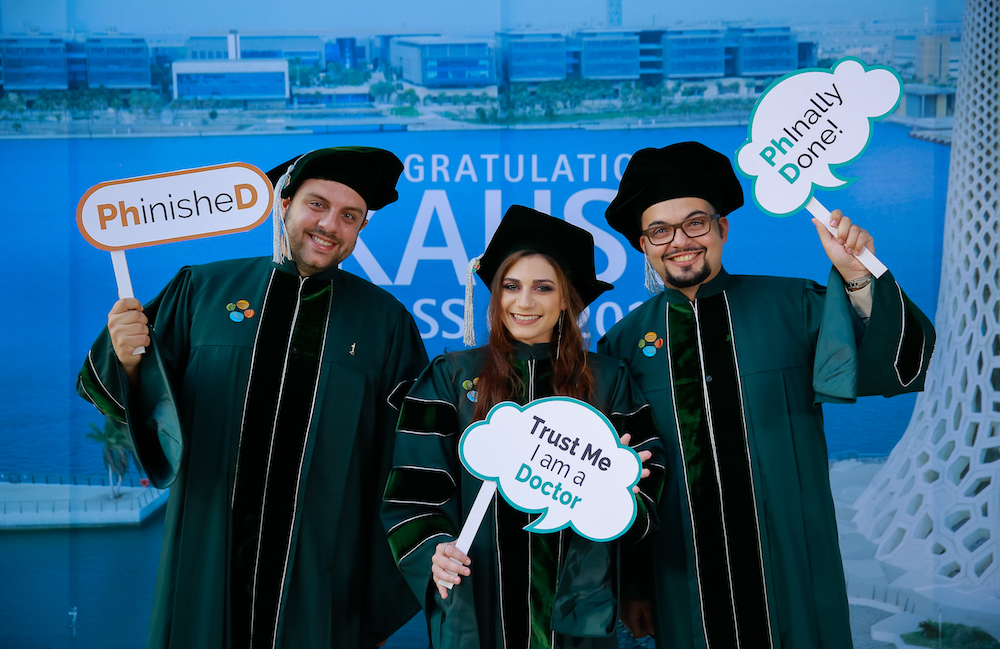Alumni Focus: Joanna Nassar

Joanna Nassar (Ph.D. '17, M.S. '13) (center), received both her master's degree and Ph.D. in electrical engineering from KAUST. File photo.
-By David Murphy, KAUST News
Joanna Nassar received her Ph.D. in electrical engineering under the supervision of Professor Muhammad Mustafa Hussain in December 2017. Nassar, a Lebanese native, feels her love of creating art through her drawings and music is a major influence in how she reshapes electronics in the laboratory.
"My creativity has given me an open mind towards seeking 'out of the box' solutions, and while I'm always realistic when setting goals, I consistently develop ways to efficiently achieve those goals," Nassar said.
Prior to KAUST, Nassar completed her bachelor's degree in physics at the American University of Beirut in 2012. She received her master's degree in electrical engineering from KAUST in 2013.
"KAUST was undeniably the key to drive me a step closer to achieving my goals. It gave me the opportunity to challenge my fears, work harder towards my aspirations and successfully grow on an academic and personal level. At KAUST, I became more confident, determined, independent and proud," she said.
"For me, the state-of-the-art facilities, wide research opportunities and multiculturalism are at the core of KAUST, bringing together a community of top researchers, scientists and engineers sharing the same goals and a passion for science and technology," Nassar noted.
Nassar is now a postdoctoral fellow in the Department of Medical Engineering at Caltech. Her end goal is to put into practice her knowledge and skills to develop technologies to ultimately build organizations that have a humane purpose.
"My heart drives me toward helping people. Electronics can be fun, practical and convenient, but they can also be used to positively change or save someone's life. The future of wearables and implantable electronics for advanced healthcare is promising, and I plan to pursue this field to explore new opportunities for preventive disease detection while focusing on affordability and accessibility for a truly global impact," Nassar said.
Related stories:
- KAUST alumnus honored by Xi'an Jiaotong University
-
Young KAUST scientists attend 65th Lindau Nobel Laureate Meeting
-
Alumni Focus: Klemens Katterbauer - Ph.D. '15 in Earth Science and Engineering
-
Alumni Focus: Hommood Alrowais - M.S '10 in Electrical Engineering
- Student Focus: Gaurav Agarwal
-
KAUST alumnus Jagdish Chandra Vyas wins seismology poster award

